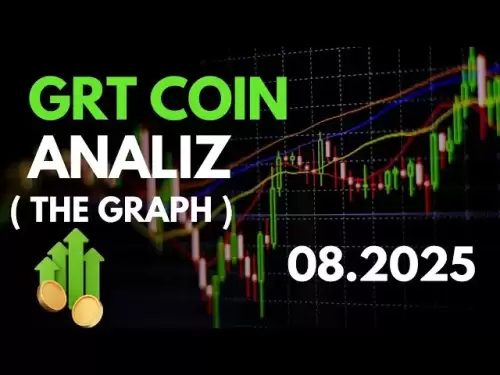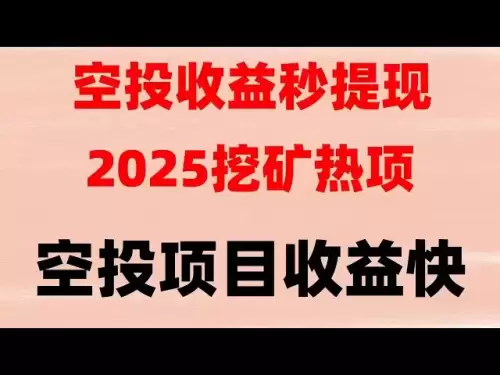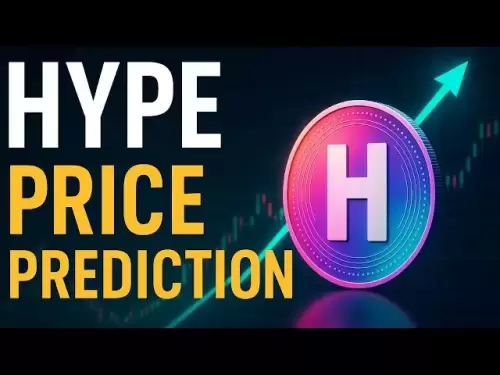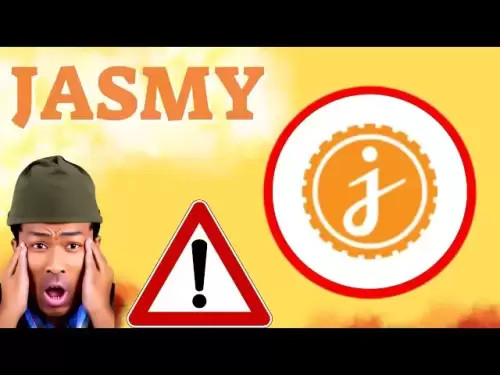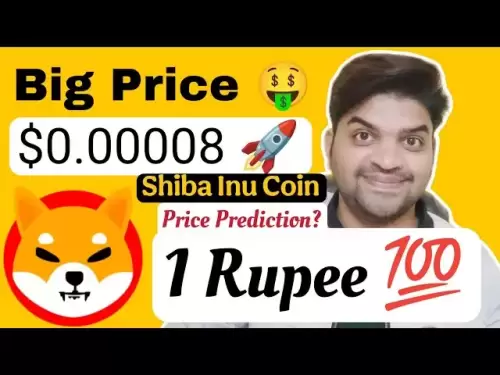-
 Bitcoin
Bitcoin $119300
2.40% -
 Ethereum
Ethereum $4254
-0.20% -
 XRP
XRP $3.184
-1.38% -
 Tether USDt
Tether USDt $1.000
0.00% -
 BNB
BNB $803.9
0.58% -
 Solana
Solana $183.1
1.50% -
 USDC
USDC $0.0000
0.01% -
 Dogecoin
Dogecoin $0.2339
-2.87% -
 TRON
TRON $0.3384
0.88% -
 Cardano
Cardano $0.8018
-0.29% -
 Hyperliquid
Hyperliquid $45.13
3.14% -
 Chainlink
Chainlink $22.10
0.96% -
 Stellar
Stellar $0.4439
-0.94% -
 Sui
Sui $3.875
-0.73% -
 Bitcoin Cash
Bitcoin Cash $570.7
0.24% -
 Hedera
Hedera $0.2589
-2.90% -
 Ethena USDe
Ethena USDe $1.001
-0.01% -
 Avalanche
Avalanche $23.83
-1.73% -
 Litecoin
Litecoin $123.8
2.61% -
 Toncoin
Toncoin $3.351
-1.13% -
 UNUS SED LEO
UNUS SED LEO $9.103
1.13% -
 Shiba Inu
Shiba Inu $0.00001356
-1.40% -
 Uniswap
Uniswap $10.93
-0.19% -
 Polkadot
Polkadot $4.057
-1.97% -
 Dai
Dai $1.000
0.01% -
 Cronos
Cronos $0.1646
4.66% -
 Ethena
Ethena $0.7974
8.11% -
 Pepe
Pepe $0.00001208
-2.89% -
 Bitget Token
Bitget Token $4.445
-1.70% -
 Monero
Monero $268.8
-2.00%
Application scenarios and value of Gods Unchained (GODS) currency
Gods Unchained revolutionizes play-to-earn gaming with its captivating card gameplay, decentralized structure, and GODS token, which rewards players, influences governance, and drives market engagement.
Dec 25, 2024 at 03:18 am
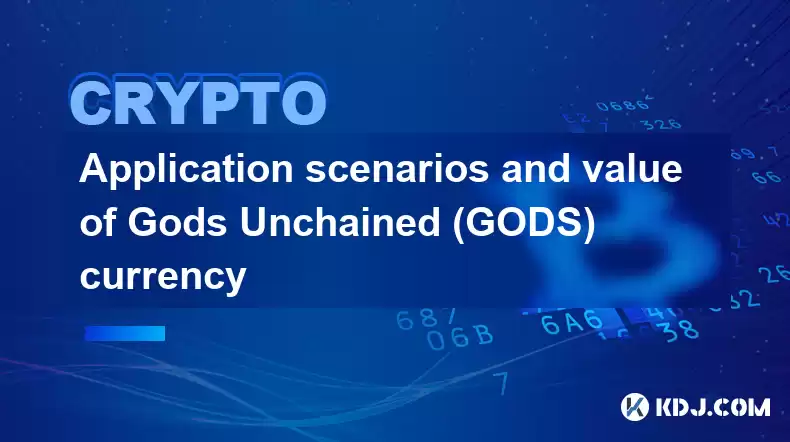
Key Points:
- Gods Unchained: Overview and Gameplay
- GODS Currency: Utility and Supply
- Earning GODS: Play-to-Earn Rewards
- Staking GODS: Yield Farming Opportunities
- Potential Investment Value of GODS
- Limitations of Gods Unchained and GODS
- Conclusion: Gods Unchained - Revolutionizing Play-to-Earn Gaming
1. Gods Unchained: Overview and Gameplay
Gods Unchained is an innovative collectible card game (CCG) built on the Ethereum blockchain. Its focus on decentralization and player ownership sets it apart from traditional CCGs. The game revolves around strategic deck-building and engaging battles against other players. Players can acquire unique cards through various gameplay modes, including ranked play, tournaments, and challenges.
2. GODS Currency: Utility and Supply
The GODS token is the native currency of Gods Unchained. It serves various functions within the ecosystem:
- Play-to-Earn Rewards: GODS tokens are awarded to players as rewards for participating in tournaments, daily Quests, and other gameplay activities.
- Governance: GODS holders have the ability to influence the development and governance of the game through voting on proposals.
- Market Purchases: GODS can be used to purchase items within the Gods Unchained Marketplace, such as card packs, emotes, and cosmetics.
The total supply of GODS is capped at 500 million tokens. A portion of the supply is allocated to the game's development team and investors, with the remaining distributed to players through play-to-earn rewards.
3. Earning GODS: Play-to-Earn Rewards
Gods Unchained offers players the opportunity to earn GODS tokens through play-to-earn gameplay:
- Ranked Play: Win ranked matches to earn Season Passes, which can be upgraded to earn additional GODS.
- Tournaments: Participate in tournaments and place high on the leaderboard to earn GODS rewards.
- Daily Quests: Complete daily quests to earn small amounts of GODS.
Players can accumulate GODS tokens over time by consistently participating in gameplay activities.
4. Staking GODS: Yield Farming Opportunities
GODS staking rewards players for contributing to the security and governance of the Gods Unchained network. Players can stake their GODS tokens in the Genesis Forge to earn a portion of the protocol's fees. The annual percentage yield (APY) of staking GODS fluctuates based on network usage and the number of staked tokens.
5. Potential Investment Value of GODS
The value of GODS is influenced by several factors:
- Game Adoption: The increasing popularity and growth of Gods Unchained positively impacts the demand for GODS tokens.
- Play-to-Earn Model: The play-to-earn rewards system provides a sustainable source of GODS tokens for players.
- Scarcity and Token Burn: The capped supply of GODS and the regular burning of tokens contribute to its potential value appreciation.
6. Limitations of Gods Unchained and GODS
Like any emerging project, Gods Unchained and GODS face certain limitations:
- Gameplay Complexity: Gods Unchained can have a learning curve for new players unfamiliar with collectible card games.
- Volatility: The value of GODS is subject to fluctuations in the cryptocurrency market, resulting in potential price volatility.
- Competition: Gods Unchained faces competition from other CCGs, both traditional and blockchain-based, which may impact its growth and adoption.
7. Conclusion: Gods Unchained - Revolutionizing Play-to-Earn Gaming
Gods Unchained brings a captivating twist to the CCG genre with its decentralized structure and play-to-earn model. The GODS token plays a crucial role in the game's functionality, rewarding players, influencing governance, and driving market participation. GODS has potential investment value due to the game's adoption, play-to-earn economy, and token scarcity.
FAQs:
Q: Is Gods Unchained pay-to-win?
A: No, Gods Unchained follows a skill-based play-to-earn model where players earn rewards based on their performance rather than spending money.
Q: How do I buy GODS tokens?
A: GODS tokens can be purchased on cryptocurrency exchanges such as Binance, Coinbase, and Uniswap.
Q: Can I use GODS to buy cards outside of the Gods Unchained Marketplace?
A: No, GODS tokens are primarily used within the Gods Unchained ecosystem and cannot be directly used to purchase cards elsewhere.
Q: Is it possible to earn GODS tokens without playing ranked matches?
A: Yes, players can earn a limited number of daily GODS tokens by completing daily quests and participating in certain events.
Disclaimer:info@kdj.com
The information provided is not trading advice. kdj.com does not assume any responsibility for any investments made based on the information provided in this article. Cryptocurrencies are highly volatile and it is highly recommended that you invest with caution after thorough research!
If you believe that the content used on this website infringes your copyright, please contact us immediately (info@kdj.com) and we will delete it promptly.
- Dogecoin, Toncoin, and Cold Wallet: Navigating Crypto's Latest Waves
- 2025-08-11 12:30:11
- Ethereum's Resilience: Short Liquidations and Key Support Levels
- 2025-08-11 12:50:12
- Bitcoin Price Rockets Towards $121,000: What's Fueling the BTC Surge?
- 2025-08-11 13:10:12
- Bitcoin's Open Interest Surges 45%: Is $150K Next?
- 2025-08-11 13:30:12
- Pudgy Penguins Soar: Navigating Collectibles and Distribution in the NFT World
- 2025-08-11 12:50:12
- Crypto Altcoins: Is Today the Day to Invest for NYC-Sized Gains?
- 2025-08-11 12:55:12
Related knowledge

How to purchase Aragon (ANT)?
Aug 09,2025 at 11:56pm
Understanding Aragon (ANT) and Its PurposeAragon (ANT) is a decentralized governance token that powers the Aragon Network, a platform built on the Eth...

Where to trade Band Protocol (BAND)?
Aug 10,2025 at 11:36pm
Understanding the Role of Private Keys in Cryptocurrency WalletsIn the world of cryptocurrency, a private key is one of the most critical components o...

What is the most secure way to buy Ocean Protocol (OCEAN)?
Aug 10,2025 at 01:01pm
Understanding Ocean Protocol (OCEAN) and Its EcosystemOcean Protocol (OCEAN) is a decentralized data exchange platform built on blockchain technology,...

Where can I buy UMA (UMA)?
Aug 07,2025 at 06:42pm
Understanding UMA and Its Role in Decentralized FinanceUMA (Universal Market Access) is an Ethereum-based decentralized finance (DeFi) protocol design...

How to buy Storj (STORJ) tokens?
Aug 09,2025 at 07:28am
Understanding Storj (STORJ) and Its Role in Decentralized StorageStorj is a decentralized cloud storage platform that leverages blockchain technology ...

What is the best app to buy Nano (NANO)?
Aug 09,2025 at 03:35am
Understanding Nano (NANO) and Its Unique FeaturesNano is a feeless, instant cryptocurrency designed for fast peer-to-peer transactions. Unlike many ot...

How to purchase Aragon (ANT)?
Aug 09,2025 at 11:56pm
Understanding Aragon (ANT) and Its PurposeAragon (ANT) is a decentralized governance token that powers the Aragon Network, a platform built on the Eth...

Where to trade Band Protocol (BAND)?
Aug 10,2025 at 11:36pm
Understanding the Role of Private Keys in Cryptocurrency WalletsIn the world of cryptocurrency, a private key is one of the most critical components o...

What is the most secure way to buy Ocean Protocol (OCEAN)?
Aug 10,2025 at 01:01pm
Understanding Ocean Protocol (OCEAN) and Its EcosystemOcean Protocol (OCEAN) is a decentralized data exchange platform built on blockchain technology,...

Where can I buy UMA (UMA)?
Aug 07,2025 at 06:42pm
Understanding UMA and Its Role in Decentralized FinanceUMA (Universal Market Access) is an Ethereum-based decentralized finance (DeFi) protocol design...

How to buy Storj (STORJ) tokens?
Aug 09,2025 at 07:28am
Understanding Storj (STORJ) and Its Role in Decentralized StorageStorj is a decentralized cloud storage platform that leverages blockchain technology ...

What is the best app to buy Nano (NANO)?
Aug 09,2025 at 03:35am
Understanding Nano (NANO) and Its Unique FeaturesNano is a feeless, instant cryptocurrency designed for fast peer-to-peer transactions. Unlike many ot...
See all articles





















